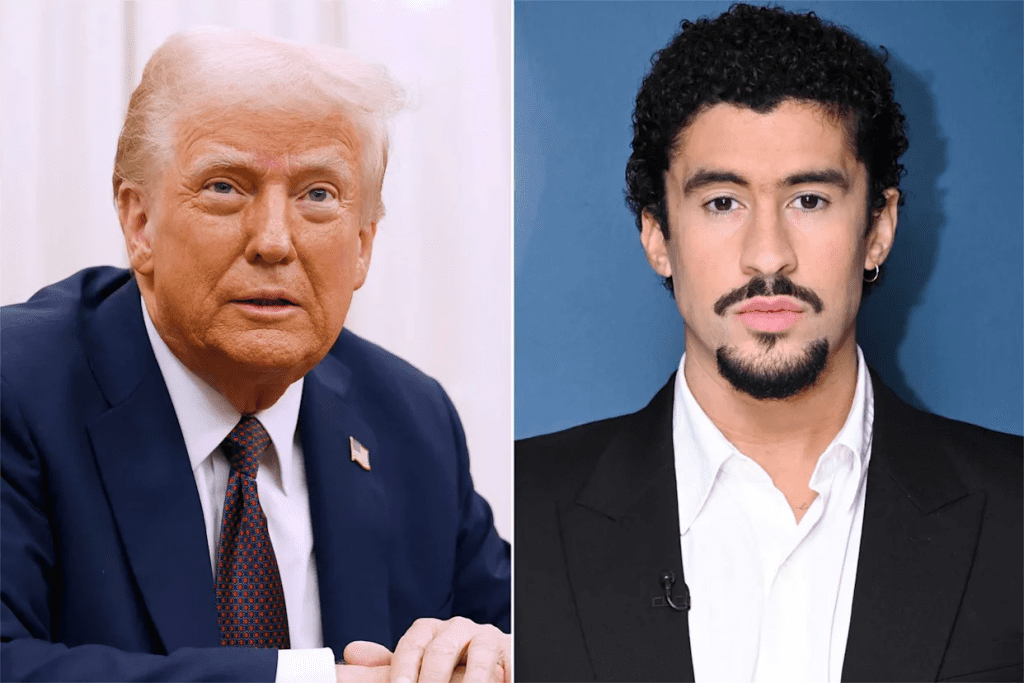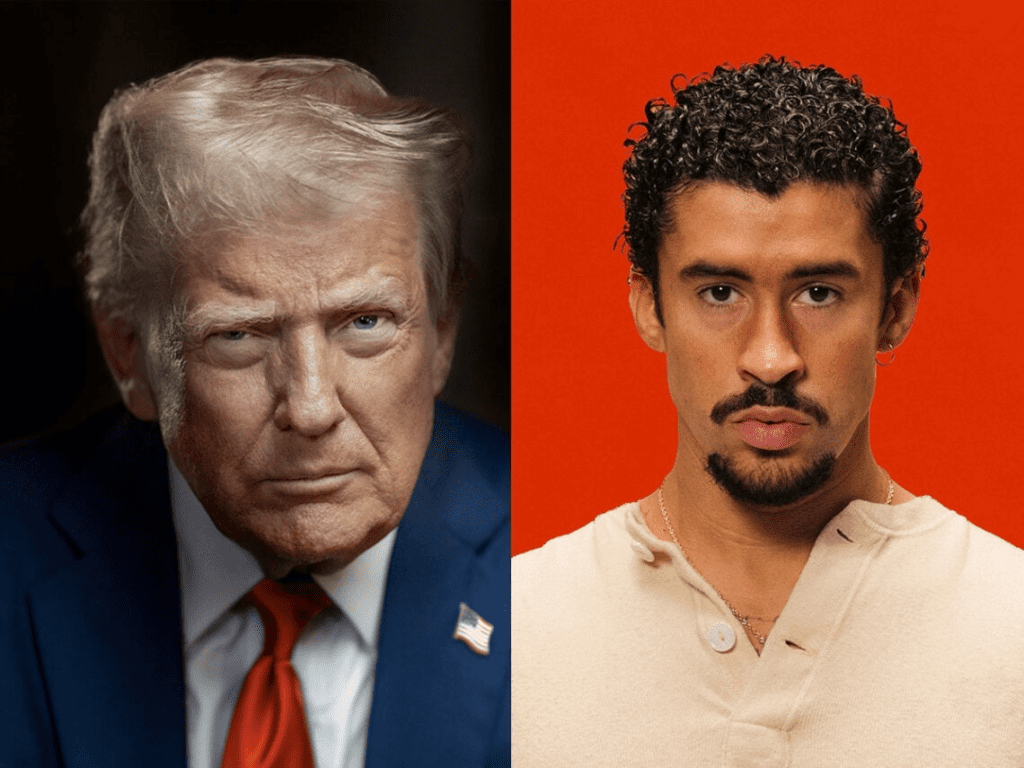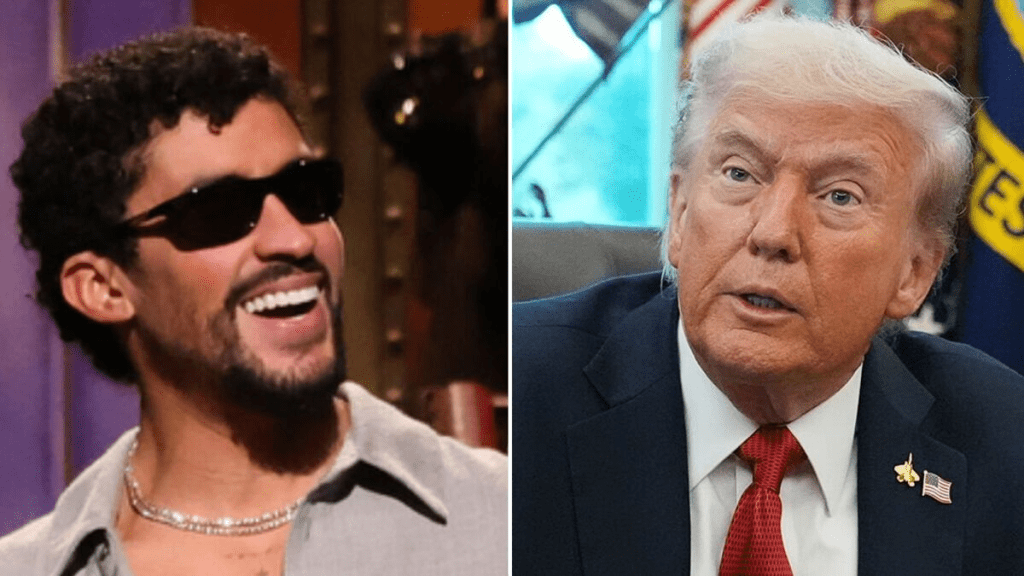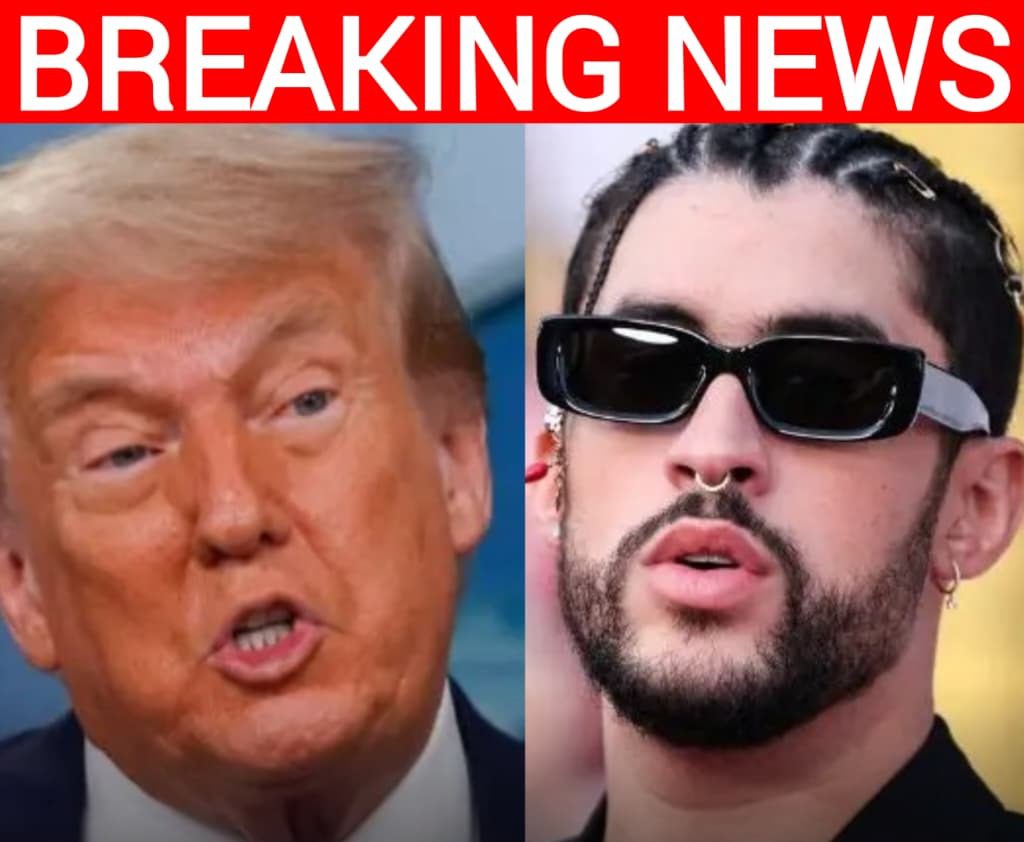Donald Trump Calls NFL’s Decision to Pick Bad Bunny for Super Bowl Halftime Show “Crazy,” Questioning Why the League Chose a Performer He’s Never Heard Of
Former President Donald Trump has weighed in on the NFL’s latest Super Bowl halftime show controversy, calling the league’s decision to feature Puerto Rican superstar Bad Bunny “crazy.” Speaking during a live phone interview on Newsmax’s Greg Kelly Tonight, Trump said he had “never heard of” the reggaeton artist and questioned why the NFL continues to make choices that alienate its traditional audience.
“I’ve never heard of him. I don’t know who he is. I don’t know why they’re doing it — it’s crazy,” Trump said, his tone mixing disbelief and amusement. The comment immediately sparked a wave of reactions online, with supporters applauding his candor while critics accused him of being out of touch with modern pop culture.

Bad Bunny, whose real name is Benito Antonio Martínez Ocasio, is one of the world’s most-streamed artists, known for blending reggaeton, Latin trap, and pop music. With over 45 million monthly Spotify listeners and multiple Grammy Awards, he represents a new generation of global performers. The NFL, through its ongoing partnership with Jay-Z’s Roc Nation, has aimed to diversify its halftime lineup and appeal to broader demographics, particularly younger and Latino audiences.
However, Trump’s remarks tapped into a growing sense of frustration among conservative fans who say the league has drifted too far from its core base. Many took to social media to echo Trump’s view, suggesting the NFL is more focused on making political statements and social gestures than delivering a show that resonates with the majority of its viewers. “We went from legends like Springsteen and Prince to acts most Americans don’t even know,” one commenter wrote. “Trump’s right — the NFL doesn’t understand its audience anymore.”

The announcement of Bad Bunny’s Super Bowl LX performance, scheduled for February 8, 2026, has already sparked a fierce cultural debate. Some praised the move as forward-thinking, celebrating the inclusion of a Latino artist at one of America’s biggest stages. Others, however, see it as another example of what they call the league’s “woke entertainment” direction — one that prioritizes headlines over heritage.
Trump’s comments fit squarely into that cultural divide. His supporters view the former president as giving voice to millions of everyday Americans who feel their traditions and preferences are being dismissed by elite institutions. “It’s not about being against anyone,” said one fan on X (formerly Twitter). “It’s about the NFL forgetting who made the Super Bowl what it is — regular Americans.”

This isn’t the first time the former president has taken aim at the NFL. During his presidency, Trump frequently criticized the league over players kneeling during the national anthem, arguing it disrespected the flag and alienated patriotic fans. His stance, while controversial, resonated with a large portion of the population that saw the NFL as becoming increasingly political.
Bad Bunny’s rise to fame, meanwhile, has been meteoric, marked by chart-topping hits, global tours, and crossover success in the U.S. But for many older viewers, especially those who grew up during the golden age of rock, pop, and classic American acts, the Super Bowl halftime stage has felt increasingly unfamiliar.

The contrast between Trump’s traditionalist appeal and the NFL’s push toward globalized entertainment could not be more clear. For his base, Trump’s words weren’t just about one artist — they were about the broader shift in American culture, where long-standing traditions seem to be fading in favor of flashy, short-lived trends.
The NFL has not responded to Trump’s comments, and Bad Bunny’s representatives have declined to address the controversy. But the debate shows no signs of slowing down. With over 100 million viewers expected to tune in for Super Bowl LX, the halftime show is set to be one of the most talked-about — and potentially divisive — performances in years.
For Trump, the message was simple: the league should remember its audience. For millions of his supporters, that sentiment continues to resonate far beyond football.


